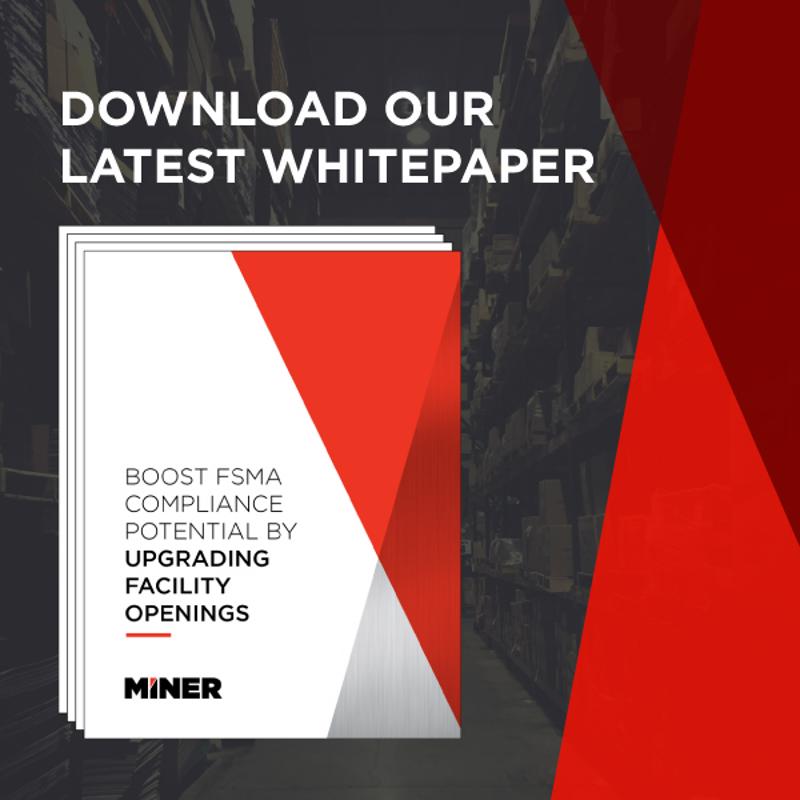Phase two of the Food Safety Modernization Act (FMSA) went into effect this April, which means that small carriers with less than $500,000 in annual revenue or fewer than 50 employees must meet all requirements. Larger companies have been required to meet these standards since April 2017.
The FSMA is meant to improve the food industry in the U.S. by creating more stringent guidelines for safe food handling and production practices. Now that rules are required for all companies throughout the industry, those facilities that aren’t compliant should strive to update equipment and practices that are holding them back.
Dock seals and levelers prevent contamination
One of the most critical points in the distribution of food is at the loading dock, and the design of a truck dock ramp has a significant impact on food safety. There are plenty of ways contamination can occur here, so it’s critical that facility managers pay close attention to the equipment and processes involved.
Many food items have precise temperature requirements for proper storage, including anything that’s frozen or refrigerated. In the warehouse, they are enclosed in cold storage, and once they’re loaded onto a reefer trailer, they should be safe for the journey to their endpoint. The time it takes to get from storage to trailer, however, can pose serious risks.
First, all temperature-sensitive food must be moved quickly and efficiently. Frozen meat sitting on pallets at the loading dock on a warm day can easily begin to thaw, which allows for bacteria growth and compromises the freshness, taste and quality of the food, according to the Centers for Disease Control and Prevention.
Dock seals
Even if employees transport products promptly, any defects in dock equipment can pose a threat to food. Dock seals that let warm air infiltrate cold storage can work against your refrigerator system, making it expend more energy and run up a higher utility bill. And if hot air is allowed to seep into the climate controlled environment, that means contaminants of all kinds – dust, pests, etc. – can exploit the same vulnerabilities.
Dock levelers
Dock levelers seal off the loading zone from the elements, and vertically stored levelers offer more protection than older, more traditional models. They can work in tandem with insulated dock doors and lie along the same plane as the floor, eliminating the possibility for air and light to threaten the integrity of inventory arriving or departing.
Vehicle restraints
Vehicle restraints are usually referred to as a safety feature, and rightfully so. Restraints prevent trailers from rolling away from the dock, which reduces the chances that a forklift accident will happen. But trailer creep can also cause a broken dock seal, and when the trailer shifts away from the dock seal, shelter and leveler, outside air and any environmental contaminants can sneak in. Apart from how it helps forklift drivers stay safe, vehicle restraint systems also prevent unexpected gaps from appearing between the vehicle and the building.
Dock updates that meet FSMA requirements
The FSMA is relatively new, so many companies may still be figuring out ways to improve their facilities and ensure greater control over food quality. When working to upgrade a warehouse, distribution center, production facility or other type of food supply chain location, working with a knowledgeable partner can help. Miner’s service professionals are up to date on the latest industry technology and standards, and can assist facility managers in their modernization efforts. To arrange for a food-grade facility inspection or to discuss opportunities to update aging equipment, connect with Miner.

